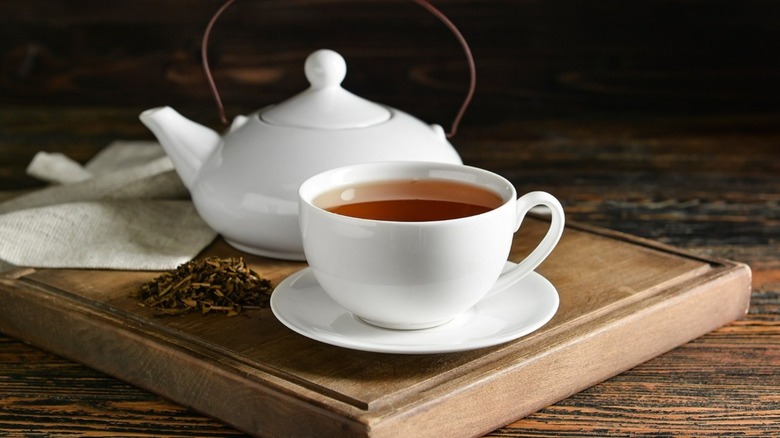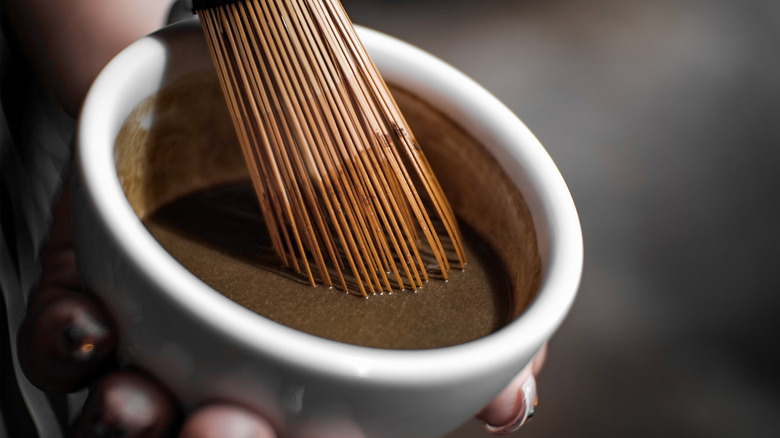Hojicha: The Sweet And Smoky Tea For Low-Caffeine Mornings
Coffee seems to have transcended borders because no matter where a particular preparation originates from, it is collectively enjoyed all over the world. Espressos and flat whites though Italian and Australian, are building blocks of cafe menus across the globe (via Business Insider). Ireland's Irish coffee is a popular after-dinner tipple everywhere, and Vietnamese and Turkish coffees are quickly gaining popularity, too.
When it comes to tea, however, few know of beverages beyond the occasional chai or Japanese matcha. But there's one other Japanese green tea that you should consider trying, especially if you'd like to begin your day with less caffeine: hojicha. According to Matcha Oishii, hojicha gets its name from houji and cha, the Japanese words for roast and tea. Befitting of its name, hojicha is a roasted green tea, but very different from usual green teas.
For one, hojicha is made from not only tea leaves, but also the stems and twigs of the tea plant. Where most Japanese green teas are only steamed, hojicha is steamed and then roasted over charcoal, giving it a brown hue. Its flavor is, thus, more smoky than grassy, and it has a mellow sweetness to it. Additionally, while matcha already has less caffeine compared to coffee, notes Healthline, hojicha has even less caffeine than matcha (via Thrillist).
Hojicha is matcha's low-caffeine cousin
Hojicha's exact appearance will depend on the type of tea leaves used, when they were harvested, and how long they were roasted (via Hojicha). These same factors are also responsible for hojicha's lower caffeine content (via Simple Loose Leaf). Hojicha is usually made from tea leaves that are plucked late in the harvest season, which inherently have a lower caffeine content. Roasting the tea leaves then reduces the caffeine content in even further. Roasting is also responsible for hojicha's lack of bitterness, which is typical of most other green teas.
Besides the fact that hojicha is an excellent low-caffeine option in the mornings, the Japanese green tea is also linked to several health benefits. Hojicha has L-Theanine, an amino acid that lowers stress and promotes relaxation (via Senbird Tea). It also contains vitamin C, which improves skin health, and vitamins A and E, which help strengthen immunity. Hojicha is also linked to better oral, heart, and gut health, according to Senbird Tea.
Hojicha is commonly found in the same powdered form as matcha, making its preparation fairly similar to its green tea cousin. It's typically made using a tea bowl called "chawan" and a bamboo whisk known as "chasen." There's also the option of adding a splash of milk to hojicha to turn it into a hot or cold latte. Alternatively, hojicha may also be sold in tea bags or as a loose-leaf tea, making its brewing process even simpler.

